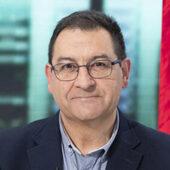
Andrés Díez Herrero
Profesor de Investigación (Dr. Ciencias Geológicas), Instituto Geológico y Minero de España (IGME - CSIC)
Less ![]()
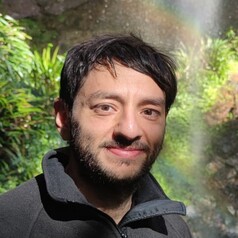
Andres Felipe Suarez-Castro
Lecturer, Griffith University
I am spatial ecologist interested in using knowledge on ecosystem functioning in conservation and environmental management planning. Currently, my research focuses on optimizing the selection of areas that can maximize biodiversity conservation and ecosystem service provisioning in human-dominated landscapes. In addition to my academic outputs, I regularly act in a range of service roles, providing advice to urban and regional planners, environmental consultants, and government institutions from both the Global South and the Global North.
Less ![]()

Andrés Ráfales Perucha
Fisioterapeuta y Personal Docente e Investigador de la Universidad San Jorge. Miembro del grupo de investigación UNLOC., Universidad San Jorge
Profesor de Anatomía (Grado en Enfermería), Cinesiterapia, Valoración en Fisioterapia y MEIF II - Aparato Locomotor (Grado en Fisioterapia).
Es Graduado en Fisioterapia, Máster en Terapia Manual Ortopédica OMT y Máster Oficial en Investigación en Ciencias de la Salud.
Actualmente realizando su tesis doctoral centrada en la relación entre las características morfofuncionales y la biomecánica humana.
Además, compatibiliza la docencia con trabajo en clínica.
Less ![]()
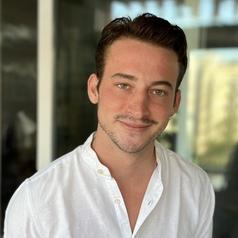
Andreu Torner
Doctorant en Relations Internationales, Universitat Ramon Llull
Doctorant en Relations Internationales à l'Université Blanquerna Ramon Llull de Barcelone, spécialisé dans les extrêmes droites au Parlement Européen.
Less ![]()

Andrew Biankin
Professor and Regius Chair of Surgery, Director of Translational Research Centre, University of Glasgow
Andrew Biankin is a surgeon-scientist whose research goals are to improve outcomes for individuals with pancreatic cancer through the development of early detection and novel therapeutic strategies based on molecular phenotyping and the delineation and implementation of biomarkers that facilitate clinical decision-making. He contributes to the International Cancer Genome Consortium through extensively characterising the genomic, transcriptomic and epigenomic aberrations in pancreatic cancer, and is extending this knowledge to a personalized model of cancer care, where molecular characteristics guide treatment decisions.
Less ![]()
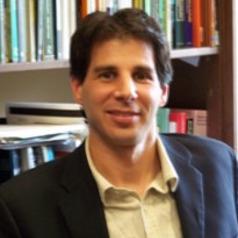
Andrew Biro
Professor, Politics, Acadia University
I am a Professor in the department of Politics at Acadia University. I also teach in Acadia's Environmental and Sustainability Studies, and Social and Political Thought programs. My teaching and research interests are at the intersections of critical theory, environmental politics, political economy, and media/cultural studies.
Less ![]()
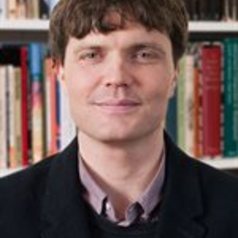
Andrew Blick
Dr. Blick's main areas of interest are the constitutional future of the UK, the contemporary significance of Magna Carta, the Civil Service, special advisers, and the office of Prime Minister. He uses an historical perspective to asses contemporary issues.
Before his academic appointment Dr Blick had extensive experience working for think tanks, in the UK Parliament and as an administrative assistant at No.10 Downing Street. Dr. Blick has acted as an adviser to democratic reform groups in countries including Ukraine and Turkey; and to the International Institute for Democracy and Electoral Assistance in Stockholm. He has carried out consultancy work for the United Nations Development Programme, European Commission, European Parliament, and UK National Audit Office. Since 2010 he has been research fellow to the first ever parliamentary inquiry into the possibility of introducing a written constitution for the UK, being carried out by the House of Commons Political and Constitutional Reform Committee.
Less ![]()
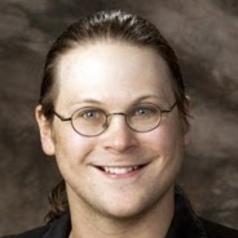
Andrew Bloeser
Associate Professor of Political Science; Director, Center for Political Participation, Allegheny College
I am an Assistant Professor of Political Science at Allegheny College in Meadville, PA. Before coming to Allegheny College, I completed my B.A. at the University of Wisconsin-Stevens Point and my Ph.D. at the University of Illinois. My research and teaching interests lie primarily in political behavior, participation, and mobilization.
As a scholar, my research is motivated by a commitment to the ideals of participatory democratic theory. More specifically, my research examines the inherent challenges of participatory democracy and seeks strategies for overcoming these challenges. One of my current projects examines the challenges of mobilizing citizens for collective action. Another examines the challenges of communicating accurate policy information to citizens.
My teaching similarly combines a focus on participatory democracy with my interests in American politics and citizen behavior. Courses I teach include political psychology, politics and the news media, and direct action organizing (social movements and community organizing).
My commitment to participatory democracy also extends beyond my academic work. Prior to joining the faculty at Allegheny College, I worked as a community organizer for the Champaign County Health Care Consumers (CCHCC) where I contributed to campaigns addressing health care and environmental justice concerns.
Less ![]()

Andrew Bowie
Senior Research Scientist in Marine Biogeochemistry, University of Tasmania
Research interests:
Chemical oceanography, marine biogeochemistry, trace elements and isotopes, analytical chemistry, ocean iron fertilisation, atmospheric dust deposition
My research has advanced our understanding of marine trace metal biogeochemistry, particularly by focussing on Southern Ocean and Antarctic sea-ice environments. I adopt an Earth system approach and have a broad my understanding of land–atmosphere– ocean interactions and the coupling of terrestrial and marine ecosystems. My current projects address key research questions on atmospheric dust deposition and solubilities, ocean iron fertilisation, physico-chemical speciation of trace elements and their isotopes, and the role of ocean dynamics on chemical and biological marine processes. I have applied my discoveries to important research outcomes related to climate change, ocean carbon sequestration, marine ecosystems dynamics, and geochemistry.
Less ![]()
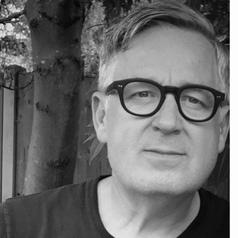
Andrew Branch
Senior Lecturer in Media and Communication , University of East London
I am interested in making sense of the workings of the creative industries, held up as drivers of progressive social and economic change by successive governments intent on superintending them. Drawing inspiration from the philosophical anthropology of Pierre Bourdieu, my research focus is on how workers in these industries - and the aspirational students of today who will be their successors - negotiate the complex relations between commercial imperatives and creative practice. I situate this interest in the wider context of examining how subjectivities are formed, embodied, negotiated and captured in media discourses, as well as their articulation in the field of education by those accumulating capital.
Less ![]()
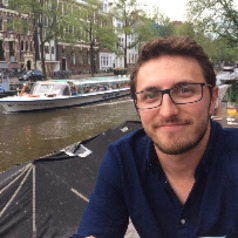
Andrew Bubak
Assistant Research Professor of Neurology, University of Colorado Anschutz Medical Campus
I am a neurovirologist interested in understanding viral-contributions to multi-system disease states including Alzheimer’s disease, cardio- and cerebrovascular disorders, diabetes, and cancer. I generate large datasets derived from patient samples/clinical data and apply complex bioinformatic analyses to produce meaningful, clinically translatable information such as biomarker and drug target discovery. My research at the level of Principal Investigator or Co-Investigator has been awarded over $17.5 mil from the National Institute of Health (NIH) and resulted in the development of national and international patents for novel drug discoveries to treat debilitating diseases.
Less ![]()

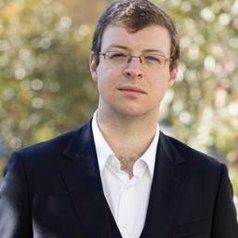
Andrew Carr
Research Fellow, Strategic and Defence Studies Centre - Australian National University, Co-Editor of the journal Security Challenges , Editor - Centre of Gravity Policy paper series
Less ![]()
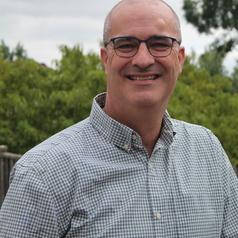
Andrew Chapados
PhD Student, Philosophy, Sociology, Social Justice, University of Windsor
I am a first year PhD student at the University of Windsor in the Department of Sociology and Criminology. My research areas of interest include Immigration & Refugees, LGBTQ+ studies, and Faith Advocacy.
I have served as a Pastor since 1995. I have enjoyed working with many newcomers to Canada here in Windsor Ontario
Less ![]()

Andrew Cheng
Postdoctoral Researcher, Linguistics, Simon Fraser University
I am a linguist who writes about the intersections of language, social identity, and film and media. I’m particularly interested in the linguistics of humor, language and accents in film, and representations of race and sexuality. I’ve published in The Chronicle of Higher Education and Babel: The Language Magazine, in addition to academic journals (including Daedalus, Amerasia Journal, and
American Speech).
Less ![]()
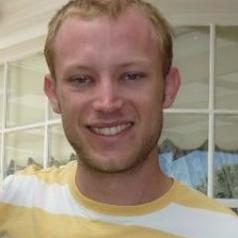
Andrew Chubb
Senior Lecturer in Chinese Politics and International Relations, Lancaster University
Andrew Chubb (朱波) researches the relationship between Chinese public opinion and PRC foreign policy, and its implications for international politics in East Asia. A graduate of the University of Western Australia, his doctoral dissertation examined the complex and evolving linkages between Chinese popular nationalism and government policy in the South China Sea. In 2012 he initiated a survey project to measure Mainland Chinese citizens' views of maritime disputes, and a blog providing translations and analysis of Chinese discourse on contentious foreign policy issues (southseaconversations.wordpress.com (link is external)).
Beyond this core focus on maritime disputes and public opinion, Andrew's research interests include strategic communication, hybridity, and Chinese Communist Party history, with publications examining the 1978-1979 Democracy Wall movement, China's shanzhai culture, military propaganda in the internet era, and the role of foreigners on PRC television. His articles can be found in the Journal of Contemporary China, Pacific Affairs, Information, Communication & Society, Foreign Policy, East Asia Forum and elsewhere.
He has a blog at https://southseaconversations.wordpress.com, and a Twitter feed @zhubochubo
Less ![]()
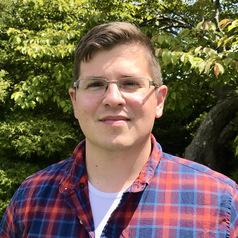
Andrew Coombs
Teaching Assistant Professor, Memorial University of Newfoundland
Dr. Andrew Coombs is a Teaching Assistant Professor at Memorial University (Newfoundland & Labrador). Andrew’s research programme focuses on understanding the factors shaping early career teachers’ assessment practices and assessment learning needs. He teaches courses at both the undergraduate and graduate level including research design, quantitative research, curriculum theory, and classroom assessment.
Less ![]()
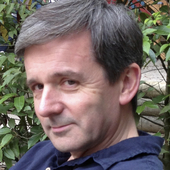
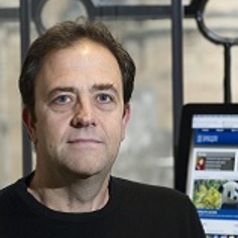
Andrew Cumbers
Before moving to Glasgow, I worked at the Universities of Durham, Middlesex and Aberdeen as a researcher, lecturer in economic geography and in economic development.
My research interests include economic geography, urban and regional development, public ownership, economic democracy and employment relations.
Less ![]()
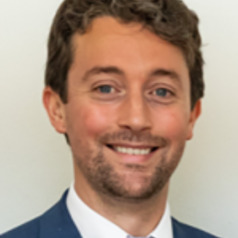
Andrew Dansie
Senior lecturer and academic lead, humanitarian engineering, UNSW Sydney
Dr Andrew Dansie (Dansie) is a Senior Lecturer and Academic Lead, Humanitarian Engineering at UNSW specialising in large-scale environmental systems and international development to meet environmental and social SDGs. Dansie has 18 years of experience in the water and development sector spanning the private sector, the United Nations, universities and an NGO.
Less ![]()
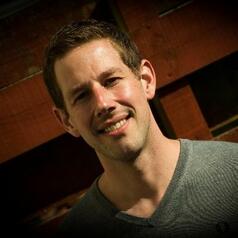
Andrew Denovan
Senior Lecturer in Psychology, University of Huddersfield
Dr Andrew Denovan is a Senior Lecturer in Psychology at the University of Huddersfield. His research primarily centres on aspects of differential psychology, including personality traits (e.g., Dark Triad, resilience). To this end, Andrew has an active interest in the development and evaluation of psychological measures, and research methods including psychometrics and statistical modelling. This has resulted in a number of recent publications focusing on the evaluation of psychological scales. His research is also concerned with wellbeing, stress, and psychopathology. Andrew possesses a strong publication record and a good record of knowledge exchange. He is also certified with the British Psychological Society as a Test User of Ability (formerly Level A) and Personality (formerly Level B).
Less ![]()
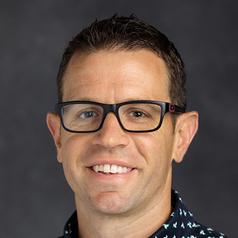
Andrew Dickerson
Assistant Professor of Mechanical, Aerospace and Biomedical Engineering, University of Tennessee
I am an NSF CAREER award recipient and fluid dynamicist with expertise in the mechanics of interfaces and interested in the biomechanics of animal locomotion. My work in these areas has generated broad interest across the fields of engineering, biology and robotics, resulting in publications in a number in high-impact interdisciplinary journals such as the Proceedings of the National Academy of Sciences, Journal of the Royal Society Interface, as well as popular journals such as Physics of Fluids.
Over the years, my research has also played a role in educating the public in science and engineering. I have been an invited guest on numerous television and radio shows to discuss my research, including Good Morning America, National Public Radio, The Weather Channel, and Discovery Channel.
Less ![]()
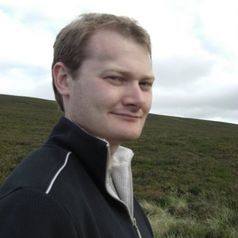
Andrew Dilley
I grew up on the Kent-East Sussex border near Tunbridge Wells. I read for a BA in Modern History between 1997 and 2000, and an M.St in Historical Research in 2000-2001, both at Wadham College, Oxford. After a year out, I studied for my doctorate at the same institution, finishing in 2006. From September 2006 until August 2008 I lectured in Imperial and Commonwealth History at King's College London. I joined Aberdeen as a Lecturer, securing promotion in 2013.
My research and teaching focus on the history of the British empire and particularly the economics, politics, and culture of the Empire-Commonwealth. I have published particularly on London finance and empire, and am now moving to study business trade and empire, supported by an AHRC Early Career Fellowship on 'Commerce and the Commonwealth'.
Less ![]()
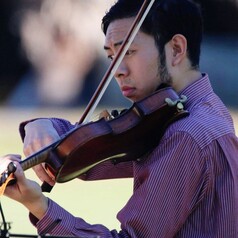
Andrew Dong
Research Affiliate, Microbiology, University of Sydney
-Investigating the unique antimicrobial properties of Australian honey in Prof. Dee Carter's laboratory
-A researcher on the Australian honeypot ant (Camponotus inflatus)
Less ![]()
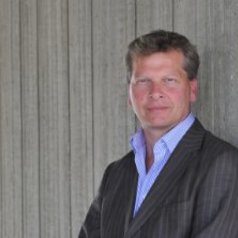
Andrew Fagan
Co-Director of Postgraduate Studies, Human Rights Centre, University of Essex
Dr Andrew Fagan (BS.c (Hons.), MA, Ph.D.) has been teaching human rights at Essex since 1998. He has occupied several positions within the Human Rights Centre, including; Deputy Director, Research Director, Director of Academic Studies and is currently Director of Postgraduate Studies.
Andrew has extensive multi-disciplinary teaching experience and interests, spanning the theory and practice of human rights. His research principally focuses upon normative issues in the political philosophy of liberalism and is actively researching in the emerging field of human rights and cultural diversity.
Andrew has taught and lectured upon human rights across the world, including Central Asia, East Asia, Europe, South East Asia and South America. Andrew is actively engaged in supporting the on-going reform process in Myanmar, travelling there regularly to undertake grass-roots capacity building human rights training for groups such as the National League for Democracy and Generation 88 and was one of the very first academics in the world to do so.
In 2013 he was also the very first academic to provide a course of summer school lectures in Kazakhstan. Andrew is an internationally recognised scholar, having published many books and articles, including; Human Rights: Confronting Myths & Misunderstandings (2009) and the Human Rights Atlas (2010). He is currently working on a book entitled Human Rights and Cultural Diversity for Edinburgh University Press.
Less ![]()
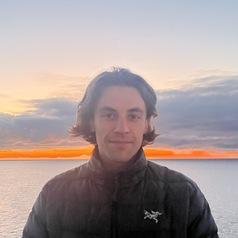
Andrew Falle
Research Coordinator and Junior Fellow, Outer Space Institute, University of British Columbia
Andrew Falle is the Research Coordinator and a Junior Fellow at the Outer Space Institute (OSI), a interdisciplinary group of experts addressing emerging issues in space sustainability. He graduated from the University of British Columbia in 2020 with a Bachelor of Arts in Political Science.
Less ![]()
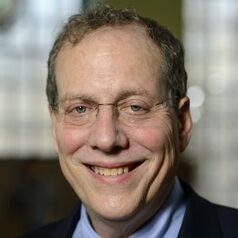
Andrew Feinberg
Professor of Biomedical Engineering, Johns Hopkins University
I did the first experiments showing altered DNA methylation in cancer. I showed that epigenetic changes (chemical changes other than DNA sequence per se) cause cancer are not simply consequential to it through my studies of the disorder Beckwith-Wiedemann syndrome. Later I had the first NIH funded epigenome center. More recently I have developed the idea the genetic variants can control epigenetic stochasticity (plasticity) and phenotype (traits) under evolutionary selection in natural populations, or within an individual in the development of cancer.
Less ![]()

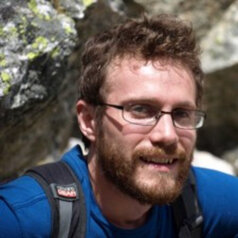
Andrew Flachs
Associate Professor of Anthropology, Purdue University
Dr. Andrew Flachs researches food and agriculture systems, exploring genetically modified crops, heirloom seeds, and our own microbiomes. Born and raised in rural Pennsylvania, he graduated from Oberlin College with dual Bachelor of Music and Bachelor of Arts degrees in 2010. He earned his PhD from Washington University in St. Louis in April 2016 and was a 2016-2017 Volkswagen Exchange Postdoctoral Research Fellow with the Heidelberg University Karl Jaspers Centre for Advanced Transcultural Studies. He is currently an associate professor of anthropology at Purdue University. Through more than 15 years of research with farmers in North America, the Balkans, and South India investigates ecological knowledge and technological change in agricultural systems spanning Cleveland urban gardens and Indian GM cotton fields. Andrew's research has been supported by public and private institutions including the Department of Education, the National Geographic Society, the American Institute of Indian Studies, and the Social Science Research Council, while his writing on agricultural development has been featured in numerous peer-reviewed publications as well as public venues including Sapiens, Salon, and the National Geographic magazine. Andrew's work has been recognized by eight international awards, including most recently as a finalist for the Society for Economic Anthropology Kate Browne Creativity in Research Award and the International Convention of Asia Scholars’ Book Prize. Outside of academia, he is an avid cook, cyclist, and musician who has performed in New York City, St. Louis, Asheville, and the San Francisco Bay Area.
Less ![]()
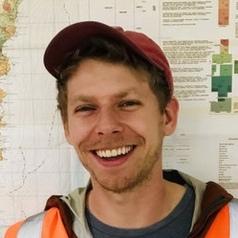
Andrew Gase
Assistant Professor of Geoscience, Boise State University
Ph.D. | University of Texas at Austin, Geological Sciences, 2022
M.S. | Boise State University, Geophysics, 2017
B.S. | Georgia Institute for Technology, Earth and Atmospheric Sciences, 2014
Research
Tectonics and geodynamics at active plate boundaries
Structure and properties of volcanic systems and materials
Seismic imaging and tomography of the lithosphere
Geophysical data analysis
Less ![]()
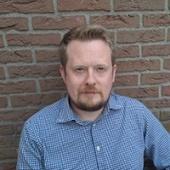
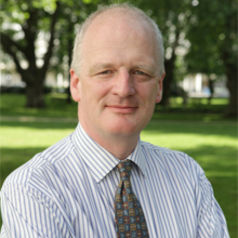
Andrew George
Andrew George was appointed Deputy Vice-Chancellor (Education and International) on 1 October 2013. He joined Brunel from Imperial College London where he was Professor of Molecular Immunology and Director of the Graduate School and the School of Professional Development.
Andrew George did his first degree at the University of Cambridge, before going on to the Tenovus Laboratories in the University of Southampton to do his PhD with Professor Freda Stevenson, developing a vaccine for B cell lymphoma. He was awarded a Beit Memorial Fellowship and stayed in Southampton for his first postdoctoral period, before going to Dr David Segal’s laboratory in the National Institutes of Health (NIH), Bethesda, USA, where he used recombinant techniques to generate novel antibody molecules. In 1992 he returned to the UK as a lecturer at the Royal Postgraduate Medical School, Hammersmith Hospital, which merged with Imperial College in 1997.
Andrew’s research has sought to understand and manipulate the immune system in order to treat disease, in particular to prevent the rejection of transplanted organs. He has also used mathematical models to understand how the immune system functions. In addition to his research, he has been involved in the ethical conduct and regulation of research. He is currently Chair of the UK’s National Research Ethics Advisors’ Panel and is on the Clinical Trials, Biologicals and Vaccines Expert Advisory Group for the Commission of Human Medicines/MHRA. He is a Governor of Richmond Adult Community College and the John Hampden School.
Less ![]()

Andrew Gissimg
Director Enterprise Risk Management, Macquarie University
He is an emergency and risk management expert. Andrew has performed various senior executive roles in the emergency management and social services sectors, including as the Deputy Chief Officer of the Victoria State Emergency Service.
Andrew is an experienced crisis leader having held senior state-wide leadership roles during some of Australia’s most significant natural disasters such as the ‘Pasha Bulka’ Storm (2007), Black Saturday Bushfires (2009), and the Victorian Floods (2010/11). He has been author of state-wide disaster plans, policies and resilience strategies, for which he has received several awards.
Andrews’s significant professional experience is complemented by his academic achievements having completed a Masters of Science (Honours) Degree and a Bachelor of Economics Degree.
Less ![]()
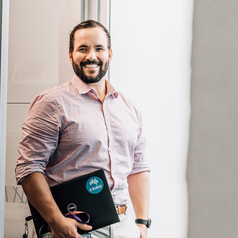
Andrew Goodman
Postdoctoral Fellow in Indigenous Health, CSIRO
My research seeks to explore novel approaches and/or solutions to improve Aboriginal and Torres Strait Islander peoples’ health and wellbeing using eHealth. My PhD (conferred November 2023, The University of Queensland) focussed on the co-design of a mobile health (mHealth) platform specifically tailored for the clinical management of CVD risk factors, in partnership with two ATSICCHOs in Far North QLD. Previous to my PhD journey (commencing in 2019) I spent more than 13 years as an Indigenous Health Worker in Queensland alongside rural and remote Aboriginal and Torres Strait Islander peoples in the discipline of cardiac and healthcare services.
Less ![]()
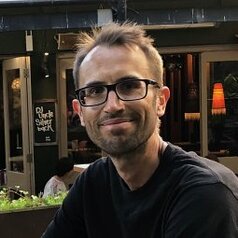
Andrew Grainger
Lecturer in Sport Development, Western Sydney University
Andy Grainger is a lecturer in Sport Development, Leisure, and Recreation at Western Sydney University. Prior to Western Sydney, he was a lecturer in Sport Sociology and Sport Development at Massey University in Aotearoa New Zealand. Andy’s research and teaching focuses primarily on the globalisation of sport and the impact of neoliberal ideology and practices on local physical cultural meanings and practices. His current research explores the intersections of sport policy, sport diplomacy, and women’s football in Aotearoa New Zealand. Andy is a co-editor, with Adam Beissel, Verity Postlethwaite, and Julie Brice, of the forthcoming collection ‘The 2023 FIFA Women's World Cup: Politics, Representation, and Management.'
Less ![]()
- Market Data























